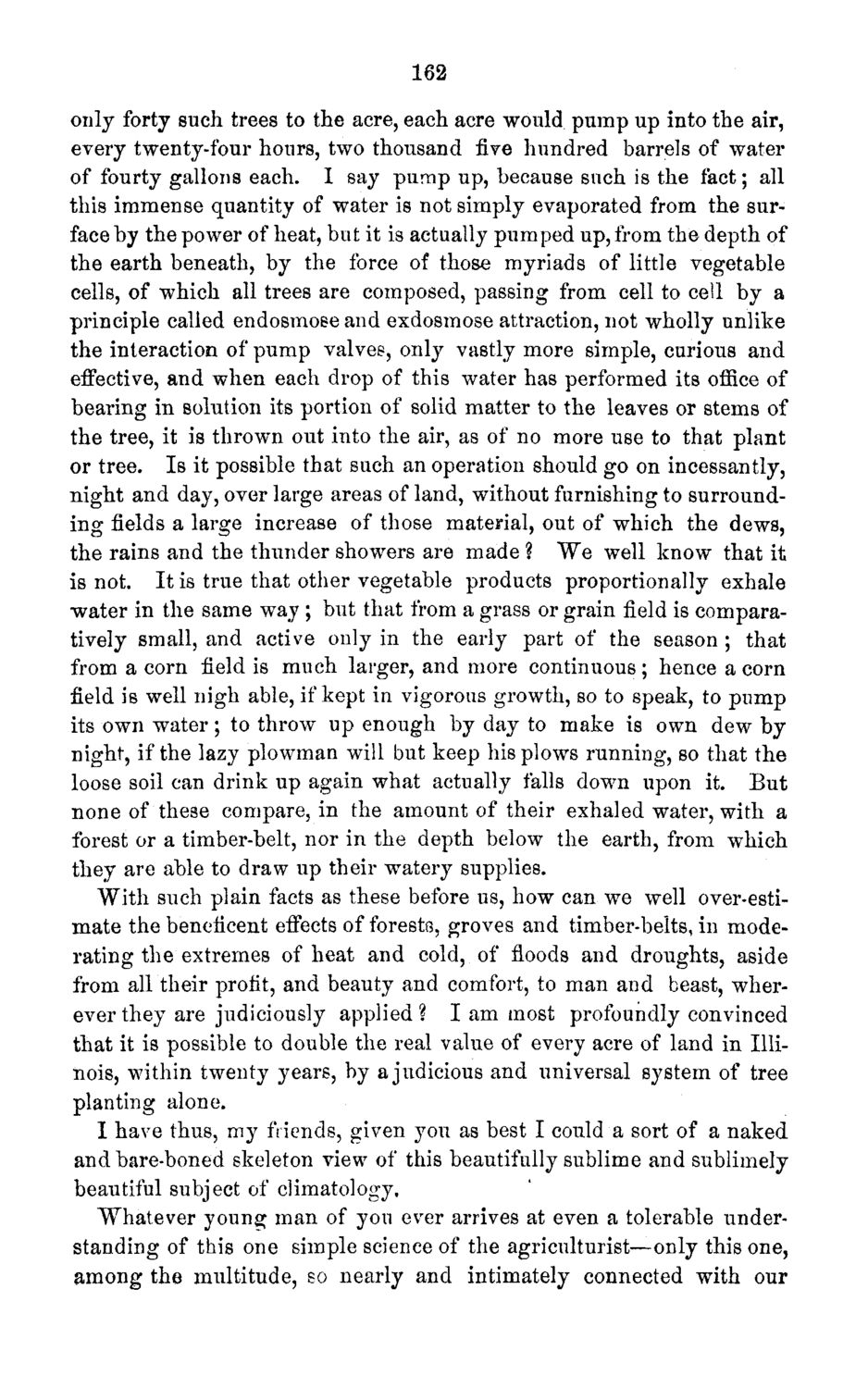| |
| |
Caption: Board of Trustees Minutes - 1871
This is a reduced-resolution page image for fast online browsing.

EXTRACTED TEXT FROM PAGE:
162 only forty such trees to the acre, each acre would pump up into the air, every twenty-four hours, two thousand five hundred barrels of water of fourty gallons each. I say pump up, because such is the fact; all this immense quantity of water is not simply evaporated from the surface by the power of heat, but it is actually pumped up, from the depth of the earth beneath, by the force of those myriads of little vegetable cells, of which all trees are composed, passing from cell to cell by a principle called endosmose and exdosmose attraction, not wholly unlike the interaction of pump valves, only vastly more simple, curious and effective, and when each drop of this water has performed its office of bearing in solution its portion of solid matter to the leaves or stems of the tree, it is thrown out into the air, as of no more use to that plant or tree. Is it possible that such an operation should go on incessantly, night and day, over large areas of land, without furnishing to surrounding fields a large increase of those material, out of which the dews, the rains and the thunder showers are made ? We well know that it is not. It is true that other vegetable products proportionally exhale •water in the same way ; but that from a grass or grain field is comparatively small, and active only in the early part of the season ; that from a corn field is much larger, and more continuous; hence a corn field is well nigh able, if kept in vigorous growth, so to speak, to pump its own water; to throw up enough by day to make is own dew by night, if the lazy plowman will but keep his plows running, so that the loose soil can drink up again what actually falls dowrn upon it. But none of these compare, in the amount of their exhaled water, with a forest or a timber-belt, nor in the depth below the earth, from which they are able to draw up their watery supplies. With such plain facts as these before us, how can we well over-estimate the beneficent effects of forests, groves and timber-belts, in moderating the extremes of heat and cold, of floods and droughts, aside from all their profit, and beauty and comfort, to man and beast, wherever they are judiciously applied? I am most profoundly convinced that it is possible to double the real value of every acre of land in Illinois, within twenty years, by a judicious and universal system of tree planting alone. I have thus, my friends, given you as best I could a sort of a naked and bare-boned skeleton view of this beautifully sublime and sublimely beautiful subject of climatology. Whatever young man of you ever arrives at even a tolerable understanding of this one simple science of the agriculturist—only this one, among the multitude, so nearly and intimately connected with our
| |